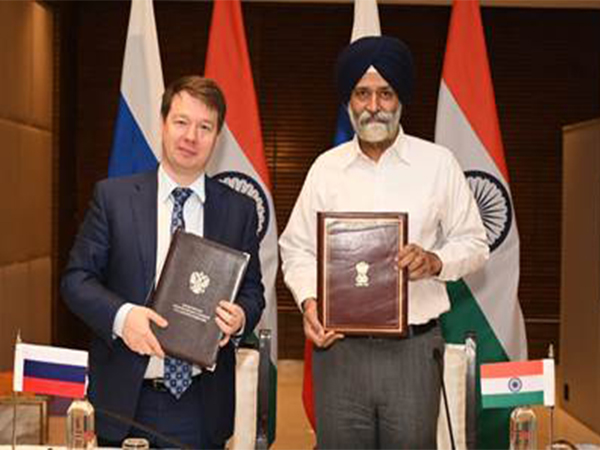Union Education Minister inaugurates UGC workshop on institutional development plan for higher educational institutions
Sep 04, 2024

New Delhi [India], September 4 : Union Education Minister Dharmendra Pradhan inaugurated the one-day workshop for higher educational institutions to develop their Institution Development Plan (IDP) on Wednesday.
According to the University Grants Commission release, the workshop is aimed at empowering higher educational institutions for their academic and professional excellence in the light of UGC Guidelines on IDP.
Aligning with the National Education Policy (NEP) 2020, the IDP provides institutions a clear roadmap to develop their vision, mission and goals for a future-ready education at the institutional level.
He also expressed that the IDP should go beyond the documents and mission statements to realise the nation's goals and cater to the aspirations of the youth.
Pradhan also pointed out that in the coming future, we need to upgrade at least 5000 existing higher educational institutions into Centres of Excellence in emerging and relevant areas.
He added that these centres will be on the right trajectory of national development if the IDP developed by the institutions focusses on entrepreneurship, skills and world-class research.
The workshop was inaugurated in the august presence of K Sanjay Murthy, Secretary, Dept. of Higher Education, Ministry of Education, Government of India, Prof M Jagadesh Kumar, Chairman, UGC and Dr NS Kalsi, Former Chairperson, NCVET.
Heads of around 200 higher education institutions across India participated in this 1-day workshop.
The workshop held at the Indian National Science Academy (INSA) in New Delhi also coincides with the release of the UGC Compendium of Regulations. The compendium will serve as a valuable resource for institutions as they develop and implement their IDP.
The Education Minister released the UGC Compendium of Regulations. This compendium consolidates all UGC rules, regulations, and notifications issued from 1957 to December 2023.
This comprehensive resource is a valuable tool for higher educational institutions and students alike, providing a single, accessible source for understanding the frameworks governing Indian higher education.
The Minister expressed his enthusiasm regarding the compendium, which includes 15 rules, 87 regulations, and 28 notifications.
The Compendium covers a wide range of topics, including inspection, fitness of institutions for grants, return of information, budget and accounts, establishments, affiliation, autonomy, accreditation, admission and fees, specification of degrees, and other miscellaneous matters.This compendium, having more than 1100 pages, is available in the form of pdf and e-book on the UGC website, the release stated.
During his address, the Secretary of Higher Education elaborated on various aspects of the IDP Guidelines, offering valuable insights on strategic planning, promoting innovation, strengthening research and development, building industry collaboration, and promoting equity & inclusivity.
In his address, Chairman, UGC, emphasised the significance of IDP as a roadmap for growth and excellence for higher educational institutions.
He highlighted how the IDP guidelines empower HEIs to take charge of their strategic development, promoting a culture of continuous improvement and ensuring they remain future-ready.
Following the success of the inaugural workshop in April 2024, this second workshop brought together experts and representatives from institutions across India to discuss strategies for effective IDP development. By providing a framework for setting clear goals, allocating resources, and monitoring progress, IDPs enable institutions to enhance their quality, relevance, and impact.
Former Chairperson, NCVET, also emphasised on the essential elements, enablers, and strategic goals of the IDP. He emphasised that IDP is a visionary document that will guide HEIs to collaborate across disciplines and commit to its institutional goals, strengthen the interdisciplinary framework and break down traditional approaches.
Through the two thematic sessions, participants had the opportunity to learn about governance enablers, financial planning and management, human resources and supportive-facilitative enablers, networking and collaboration enablers, physical enablers, digital enablers, and research and intellectual property enablers, innovative funding models, and curriculum development. Renowned experts from industry, academia, and government shared their insights and experiences on these critical areas, the release stated.
Vice Chairman, UGC, Prof. Deepak Kumar Srivastava, expressed his appreciation to all the vice chancellors, nodal officers, participants, and officials who contributed to the success of the workshop. Secretary, UGC Prof Manish Joshi reiterated the commitment of UGC to providing all necessary support in this endeavour, ensuring the continued momentum of these initiatives.



















